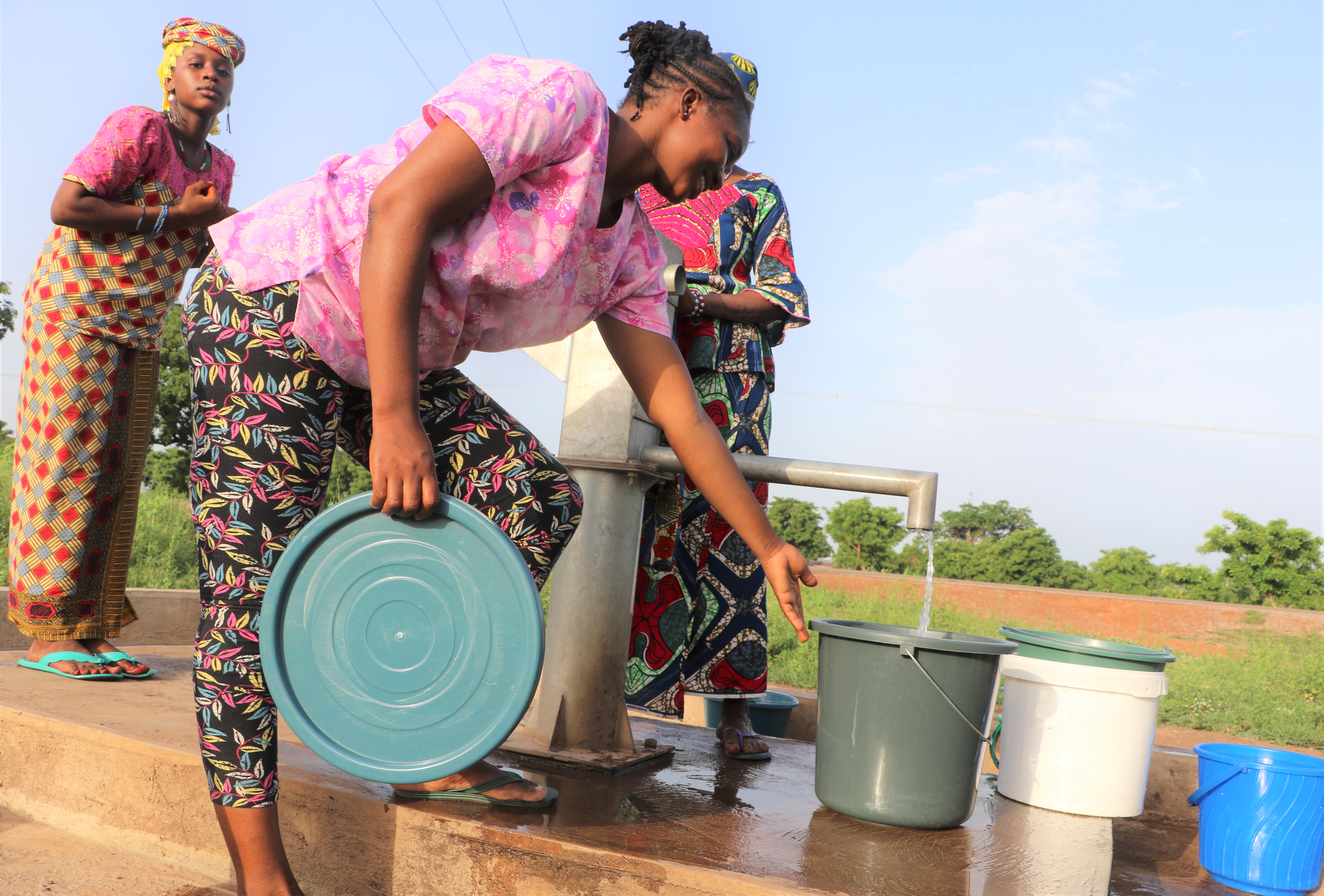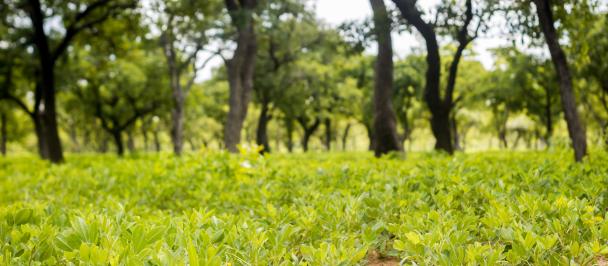Alimatu Karim, a Community Nurse at Kukobila in the Savelugu Municipal Assembly fetching water from one of the 145 boreholes provided by UNDP and the Ministry of Environment with support from the Adaptation Fund, to mitigate climate change impacts on water resource availability in 50 communities in Ghana. Photo: Praise Nutakor/UNDP.
The 2022 edition of the World Water Development report entitled “Groundwater: Making the invisible visible” which is due to be published today to coincide with world water day reveals that groundwater accounts for about 99% of all liquid fresh water on Earth. It is projected that there is likely to be a global 40% groundwater deficit by 2030. This is expected to reduce global GDP by 6% in some regions of the world by 2050.
In Ghana like many other developing countries, most of the volume of water withdrawn for domestic use including drinking water and water for irrigation purposes comes from groundwater sources. Ghana’s efforts to improve access to water have borne fruit and about 92% of Ghanaians have access to improved water sources. In rural areas such as in the Yindongo community in the Upper East region of Ghana, Madam Agabeni Abaa and the other 100 women have improved their livelihoods through dry season gardening powered by groundwater sources. Partnerships between the Government, UNDP and the Adaptation Fund that enable access to groundwater, are changing lives in underserved communities in the Savannah region and four Northern regions of Ghana. It is reducing the time women like Fatima and Alimatu spend and the distance they travel in search of water.
Yet the theme for this year’s world water day reminds us that, availability and access to groundwater are at risk and must be protected. With the ongoing climate emergency and its associated impacts such as the changes in recharge and evapotranspiration patterns, groundwater resources will become increasingly stressed leading to a potential acceleration in groundwater depletion.
Human activities such as indiscriminate disposal of harmful substances and chemicals on the soil and other activities like illegal mining activities continue to undermine the value of groundwater, making it more vulnerable to depletion and pollution with its associated economic cost. For example, the World Bank Ghana Country Environmental Analysis estimates about 1.8 billion losses annually due to water pollution, equivalent to about 3% of Ghana’s GDP. In the context of the alarming risk of missing the SDG 6 targets as reported by the 2020 SDG 6 Global Acceleration Framework progress report coupled with the global climate crisis, urgent action is needed to sustainably manage underground water resources.
Three key things need to urgently happen:
- First, we must act to translate water resources management plans into concrete actions. It is time to translate the plans and strategies already developed to address water resources management challenges, including the Integrated Water Resources Management and Investment plans for the Black and Oti river basins, and the groundwater management strategy developed by the Water Resources Commission of Ghana, into concrete actions at the local levels. All stakeholders have a role to play including communities, the private sector, and the government to address potential threats to water resources. Addressing threats to both surface and groundwater will see Ghana’s rivers return to their former clean glory. If we start today, we will see a sustainable tomorrow.
- Second, women must be at the centre of water resources management and the decision-making process. Women and girls must be engaged in managing water resources to leverage their distinct roles in water collection and use, and their specific vulnerabilities in the context of extreme weather events. Integrating gender equality in decision making on the management of groundwater resources is vital.
- Third, collaborative research, data collection and quantitative analysis of groundwater resources are needed. While information exists on the quality of groundwater resources, there is limited data on the quantity and volume of groundwater resources across the regions. By using digitalization and innovative data approaches, key institutions can enhance real-time sustainable management and valuation of water resources.
As the world considers a future under more water stress, Ghana is well-positioned to sustainably manage its water resources above and below ground. This can be done through strategic local level actions, more equitable and inclusive water resource management, and collaborative partnerships on data and digitalization. UNDP, working as part of the UN in Ghana, remains committed to our partnerships towards sustainable management of water resources and the acceleration of Ghana’s achievement of the SDGs.

 Locations
Locations

